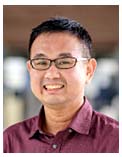 Dr. Thawatchai Chaijarasphong is an assistant professor in biotechnology at the Department of Biotechnology and the Center of Excellence for Shrimp Molecular Biology and Biotechnology (Centex Shrimp) at the Faculty of Science, Mahidol University. He obtained his Ph.D. from the University of California, Berkeley. His research focuses on the development of CRISPR diagnostics for pathogen detection in aquaculture, such as white spot syndrome virus, yellow head virus, scale drop disease virus, tilapia lake virus, etc.
Dr. Thawatchai Chaijarasphong is an assistant professor in biotechnology at the Department of Biotechnology and the Center of Excellence for Shrimp Molecular Biology and Biotechnology (Centex Shrimp) at the Faculty of Science, Mahidol University. He obtained his Ph.D. from the University of California, Berkeley. His research focuses on the development of CRISPR diagnostics for pathogen detection in aquaculture, such as white spot syndrome virus, yellow head virus, scale drop disease virus, tilapia lake virus, etc.
 Dr. Kallaya Sritunyalucksana is recently a research fellow and principal researcher of Aquatic Animal Health Research Team, National Center for Genetic Engineering and Biotechnology (BIOTEC), Integrative Aquaculture Biotechnology Research Group, National Science and Technology Development Agency (NSTDA), Thailand. She has finished her Ph.D. in comparative physiology from Uppsala University in Sweden and Ph.D. in Biotechnology from Mahidol University in Thailand. She has long experience in research with her H-index of 38 and citation index of more than 6,000, which leads her to be the world’s top 2% scientists in Fisheries for the citation impact in a single calendar year of three years in a role from 2019-2022 reported by Standford University, USA. Her research goal is to support the sustainability of shrimp aquaculture industry at local and global levels with scientific knowledge obtained from research & development, technology, and innovation to overcome the economic loss from emerging and re-emerging shrimp diseases. Dr. Kallaya has her networks at national and international levels and closely with industry, farmers, and competent authorities such as the Department of Fisheries, Thailand.
Dr. Kallaya Sritunyalucksana is recently a research fellow and principal researcher of Aquatic Animal Health Research Team, National Center for Genetic Engineering and Biotechnology (BIOTEC), Integrative Aquaculture Biotechnology Research Group, National Science and Technology Development Agency (NSTDA), Thailand. She has finished her Ph.D. in comparative physiology from Uppsala University in Sweden and Ph.D. in Biotechnology from Mahidol University in Thailand. She has long experience in research with her H-index of 38 and citation index of more than 6,000, which leads her to be the world’s top 2% scientists in Fisheries for the citation impact in a single calendar year of three years in a role from 2019-2022 reported by Standford University, USA. Her research goal is to support the sustainability of shrimp aquaculture industry at local and global levels with scientific knowledge obtained from research & development, technology, and innovation to overcome the economic loss from emerging and re-emerging shrimp diseases. Dr. Kallaya has her networks at national and international levels and closely with industry, farmers, and competent authorities such as the Department of Fisheries, Thailand.
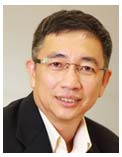 Dr. Sorawit Powtongsook graduated doctoral degree in Molecular Biology and Biotechnology from the University of Sheffield, UK. He successfully completed an International Advanced Training Course on Photosynthesis and Algal Biotechnology at Ben-Gurion University of the Negev, Israel. In 1993, he joined BIOTEC as a researcher before being appointed the Director of Integrative Aquaculture Biotechnology Research Group in 2019. He is one of the founding members of the Algal and Plankton Association of Thailand and has served as a secretariat. He has developed recirculating aquaculture system (RAS) from the lab-scale to commercial prototype. He has published over 70 papers in national and international scientific, peer-reviewed journals and has presented more than 150 conference papers. Dr. Sorawit received an Innovation Ambassador Award from the National Innovation Agency. He received research grants from the Thailand Toray Science Foundation and the International Foundation for Science (IFS), Sweden. He is currently Head of Integrative Aquaculture Biotechnology Research Group, Integrative Aquaculture Biotechnology Research Group, the National Center for Genetic Engineering and Biotechnology (BIOTEC), National Science and Technology Development Agency (NSTDA), Thailand.
Dr. Sorawit Powtongsook graduated doctoral degree in Molecular Biology and Biotechnology from the University of Sheffield, UK. He successfully completed an International Advanced Training Course on Photosynthesis and Algal Biotechnology at Ben-Gurion University of the Negev, Israel. In 1993, he joined BIOTEC as a researcher before being appointed the Director of Integrative Aquaculture Biotechnology Research Group in 2019. He is one of the founding members of the Algal and Plankton Association of Thailand and has served as a secretariat. He has developed recirculating aquaculture system (RAS) from the lab-scale to commercial prototype. He has published over 70 papers in national and international scientific, peer-reviewed journals and has presented more than 150 conference papers. Dr. Sorawit received an Innovation Ambassador Award from the National Innovation Agency. He received research grants from the Thailand Toray Science Foundation and the International Foundation for Science (IFS), Sweden. He is currently Head of Integrative Aquaculture Biotechnology Research Group, Integrative Aquaculture Biotechnology Research Group, the National Center for Genetic Engineering and Biotechnology (BIOTEC), National Science and Technology Development Agency (NSTDA), Thailand.
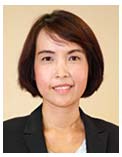 Dr. Saengchan Senapin is Principal Researcher National Center for Genetic Engineering and Biotechnology (BIOTEC), National Science and Technology Development Agency (NSTDA), Pathum Thani, Thailand Center of Excellence for Shrimp Molecular Biology and Biotechnology, Mahidol
University, Bangkok, Thailand. Dr. Senapin’s research is focused on pathogen discovery in aquatic animals and the development of diagnostics methods and vaccines, as well as host-pathogen interactions. She obtained her Ph.D. in Biochemistry and Molecular Biology from The Australian National University in 2003. Dr. Senapin holds a position as a principal researcher at the National Center for Genetic Engineering and Biotechnology (BIOTEC), which is part of the National Science and Technology Development Agency (NSTDA) in Thailand. Additionally, she serves as adjunct staff at universities in Thailand and plays a role as a co-advisor and external examiner for graduate students. Dr. Senapin frequently shares her expertise as an invited speaker at national and international conferences. She serves as a regular reviewer for international journals and national and international grants. She is also an Associate Editor for the Journal of Fish Diseases.
Dr. Saengchan Senapin is Principal Researcher National Center for Genetic Engineering and Biotechnology (BIOTEC), National Science and Technology Development Agency (NSTDA), Pathum Thani, Thailand Center of Excellence for Shrimp Molecular Biology and Biotechnology, Mahidol
University, Bangkok, Thailand. Dr. Senapin’s research is focused on pathogen discovery in aquatic animals and the development of diagnostics methods and vaccines, as well as host-pathogen interactions. She obtained her Ph.D. in Biochemistry and Molecular Biology from The Australian National University in 2003. Dr. Senapin holds a position as a principal researcher at the National Center for Genetic Engineering and Biotechnology (BIOTEC), which is part of the National Science and Technology Development Agency (NSTDA) in Thailand. Additionally, she serves as adjunct staff at universities in Thailand and plays a role as a co-advisor and external examiner for graduate students. Dr. Senapin frequently shares her expertise as an invited speaker at national and international conferences. She serves as a regular reviewer for international journals and national and international grants. She is also an Associate Editor for the Journal of Fish Diseases.
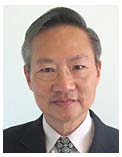 Professor emeritus Boonsirm Withyachumnarnkul graduated medical degree (M.D.) in 1973 from Mahidol University, Faculty of Medicine at Ramathibodi Hospital, and became the faculty staff of the Department of Anatomy, Faculty of Science, Mahidol University, in 1974. In 1975,
he was enrolled in the Department of Anatomy, Medical Center, University of Rochester, Rochester, NY, USA, for his Ph.D. program, and graduated in 1978. He had his post-doctoral training at Indiana University (1978-80) and the University of Texas, Health Science Center at San Antonio (1989-1990). He was a co-founder of the Center of Excellence in Shrimp Molecular Biology and Biotechnology (Centex Shrimp) of the Faculty of Science, Mahidol University, was the Head of the center during 2010-2016 and retired from Mahidol University as professor emeritus in 2016. His research activities have continued from the beginning of his career up to the present (2023), with 164 publications, mainly in shrimp diseases.
Professor emeritus Boonsirm Withyachumnarnkul graduated medical degree (M.D.) in 1973 from Mahidol University, Faculty of Medicine at Ramathibodi Hospital, and became the faculty staff of the Department of Anatomy, Faculty of Science, Mahidol University, in 1974. In 1975,
he was enrolled in the Department of Anatomy, Medical Center, University of Rochester, Rochester, NY, USA, for his Ph.D. program, and graduated in 1978. He had his post-doctoral training at Indiana University (1978-80) and the University of Texas, Health Science Center at San Antonio (1989-1990). He was a co-founder of the Center of Excellence in Shrimp Molecular Biology and Biotechnology (Centex Shrimp) of the Faculty of Science, Mahidol University, was the Head of the center during 2010-2016 and retired from Mahidol University as professor emeritus in 2016. His research activities have continued from the beginning of his career up to the present (2023), with 164 publications, mainly in shrimp diseases.
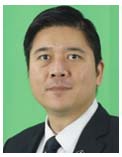 Associate Professor Charoonroj Chotwiwatthanakun is currently an academic staff of an Academic and Curriculum Division, Nakhonsawan Campus, Mahidol University, and a research member of the Center of Excellence for Shrimp Molecular Biology and Biotechnology (CENTEX Shrimp), Faculty of Science, Mahidol University (2008 - present). His main research interests are molecular pathogenesis and the immune response of shrimp against pathogens, hormonal control of shrimp reproduction and immunity, and the discovery of new therapeutic agents for shrimp disease control. He contributes to 63 research articles in peer-reviewed international journals with two petty patent applications. He has also served as a referee for several international journals, including Aquaculture, Fish and Shellfish Immunology, Journal of Fish Diseases, Journal of Virological Methods, etc.
Associate Professor Charoonroj Chotwiwatthanakun is currently an academic staff of an Academic and Curriculum Division, Nakhonsawan Campus, Mahidol University, and a research member of the Center of Excellence for Shrimp Molecular Biology and Biotechnology (CENTEX Shrimp), Faculty of Science, Mahidol University (2008 - present). His main research interests are molecular pathogenesis and the immune response of shrimp against pathogens, hormonal control of shrimp reproduction and immunity, and the discovery of new therapeutic agents for shrimp disease control. He contributes to 63 research articles in peer-reviewed international journals with two petty patent applications. He has also served as a referee for several international journals, including Aquaculture, Fish and Shellfish Immunology, Journal of Fish Diseases, Journal of Virological Methods, etc.
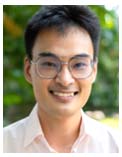 Dr. Pattana Jaroenlak is currently a lecturer at Department of Biochemistry, Faculty of Science, Chulalongkorn University. He received a PhD in Biochemistry from Mahidol University. During his PhD, he worked at Centex Shrimp to sequence the whole genome of EHP and study EHP virulence factors. He then joined New York University, School of Medicine for post-doctoral training. He worked on invasion mechanism of microsporidian species that infect human and mosquitoes. Recently, his lab at Chulalongkorn University aim to understand the invasion mechanism of EHP as well as how host cells respond to EHP infections in shrimp.
Dr. Pattana Jaroenlak is currently a lecturer at Department of Biochemistry, Faculty of Science, Chulalongkorn University. He received a PhD in Biochemistry from Mahidol University. During his PhD, he worked at Centex Shrimp to sequence the whole genome of EHP and study EHP virulence factors. He then joined New York University, School of Medicine for post-doctoral training. He worked on invasion mechanism of microsporidian species that infect human and mosquitoes. Recently, his lab at Chulalongkorn University aim to understand the invasion mechanism of EHP as well as how host cells respond to EHP infections in shrimp.
 Dr. Sage Chaiyapechara graduated from the University of Washington's School of Aquatic and Fishery Sciences with a dissertation entitled "Bacteria Associated with the Gastrointestinal Tract of Rockfish (Sebastes sp.) Larvae Reared in Aquaculture Settings." Currently, I am conducting research at BIOTEC, where my focus is on studying the interaction between microbes and shrimp aquaculture. Our research team employs advanced molecular techniques and analyses to achieve three main objectives: (1) understanding the impact of gut microbiota on immunity and disease resistance, (2) monitoring and managing the microbial population and their activities within the rearing environment, and (3) elucidating the mechanisms of feed additives and probiotics to gain a better understanding of their effects on aquatic animals. Through our work, we aim to minimize disease risks, reduce the use of unnecessary chemicals, and contribute to the future development of environmentally sustainable aquaculture.
Dr. Sage Chaiyapechara graduated from the University of Washington's School of Aquatic and Fishery Sciences with a dissertation entitled "Bacteria Associated with the Gastrointestinal Tract of Rockfish (Sebastes sp.) Larvae Reared in Aquaculture Settings." Currently, I am conducting research at BIOTEC, where my focus is on studying the interaction between microbes and shrimp aquaculture. Our research team employs advanced molecular techniques and analyses to achieve three main objectives: (1) understanding the impact of gut microbiota on immunity and disease resistance, (2) monitoring and managing the microbial population and their activities within the rearing environment, and (3) elucidating the mechanisms of feed additives and probiotics to gain a better understanding of their effects on aquatic animals. Through our work, we aim to minimize disease risks, reduce the use of unnecessary chemicals, and contribute to the future development of environmentally sustainable aquaculture.
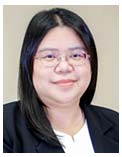 Dr. Pakkakul Sangsuriya holds the position of senior researcher at the National Center for Genetic Engineering and Biotechnology (BIOTEC), National Science and Technology Development Agency (NSTDA). Her research endeavors encompass a range of topics related to aquatic animal health and disease control. Specifically, her areas of expertise include fish and shrimp immunology, the establishment of fish cell lines, the development of fish vaccines, and the exploration of host-pathogen interactions. Presently, her primary objective involves combating the prevalence of aquatic pathogens such as scale drop disease virus (SDDV) in Asian sea bass, Tilapia Lake Virus (TiLV) in tilapia, and white spot syndrome virus (WSSV) in shrimp.
Dr. Pakkakul Sangsuriya holds the position of senior researcher at the National Center for Genetic Engineering and Biotechnology (BIOTEC), National Science and Technology Development Agency (NSTDA). Her research endeavors encompass a range of topics related to aquatic animal health and disease control. Specifically, her areas of expertise include fish and shrimp immunology, the establishment of fish cell lines, the development of fish vaccines, and the exploration of host-pathogen interactions. Presently, her primary objective involves combating the prevalence of aquatic pathogens such as scale drop disease virus (SDDV) in Asian sea bass, Tilapia Lake Virus (TiLV) in tilapia, and white spot syndrome virus (WSSV) in shrimp.
 Dr. Chumporn Soowannayan started his research career by researching the yellowhead virus of shrimp, particularly on the virus replication and host response to virus infection. He has since extended to work on other shrimp and crayfish viruses. However, after the early mortality syndrome (EMS) outbreak in cultured white-leg shrimp, to serve the industry’s needs, his research has shifted towards bacterial diseases, especially those caused by Vibrio spp., the leading cause of EMS. Since the pathogenicity of these and other bacteria in animals is related to their abilities to form biofilms in or on their host or in the host environments, his current research focuses on finding the inhibitors of these biofilms that are not antibiotics. Several inhibitors have been tested in the shrimp to determine if they can protect them from infections. Many inhibitors effectively reduce shrimp mortalities, such as a probiotic bacterium, Bacillus subtilis BSN1, which inhibits biofilms of both Vibrio harveyi and V. parahaemolyticus and protects the shrimp post larva from both bacterial infections. This probiotic bacterial isolate has now been licensed and mass-produced by the Thai Department of Fisheries and given away to and used by shrimp farmers nationwide. Similar approaches have now been adapted and applied to studying pathogenic bacteria of fish (tilapia, catfish, and seabass).
Dr. Chumporn Soowannayan started his research career by researching the yellowhead virus of shrimp, particularly on the virus replication and host response to virus infection. He has since extended to work on other shrimp and crayfish viruses. However, after the early mortality syndrome (EMS) outbreak in cultured white-leg shrimp, to serve the industry’s needs, his research has shifted towards bacterial diseases, especially those caused by Vibrio spp., the leading cause of EMS. Since the pathogenicity of these and other bacteria in animals is related to their abilities to form biofilms in or on their host or in the host environments, his current research focuses on finding the inhibitors of these biofilms that are not antibiotics. Several inhibitors have been tested in the shrimp to determine if they can protect them from infections. Many inhibitors effectively reduce shrimp mortalities, such as a probiotic bacterium, Bacillus subtilis BSN1, which inhibits biofilms of both Vibrio harveyi and V. parahaemolyticus and protects the shrimp post larva from both bacterial infections. This probiotic bacterial isolate has now been licensed and mass-produced by the Thai Department of Fisheries and given away to and used by shrimp farmers nationwide. Similar approaches have now been adapted and applied to studying pathogenic bacteria of fish (tilapia, catfish, and seabass).
 Dr. Vanvimon Saksmerprome is a Principal Investigator at National Center for Genetic Engineering and Biotechnology (BIOTEC) Thailand and currently leader of Fish and Shrimp Molecular Biology and Biotechnology Research Team. She has run the RNA interference platform group for shrimp disease control at the collaborative research unit (CENTEX Shrimp) between BIOTEC and Mahidol University. She and her group has engineered organisms that are considered as ‘‘Generally Regarding as Safe’’ by the US Food and Drug Administration such as microalgae and probiotics for double-stranded RNA production. She received both national and international grants for early-career scientists since 2008. From 2018-present, she has received a Newton Advanced Fellowship and International Collaboration Award from the Royal Society, with University of Kent and University College London, United Kingdom, to develop the microalgal platform for producing antiviral biomolecules for aquaculture.
Dr. Vanvimon Saksmerprome is a Principal Investigator at National Center for Genetic Engineering and Biotechnology (BIOTEC) Thailand and currently leader of Fish and Shrimp Molecular Biology and Biotechnology Research Team. She has run the RNA interference platform group for shrimp disease control at the collaborative research unit (CENTEX Shrimp) between BIOTEC and Mahidol University. She and her group has engineered organisms that are considered as ‘‘Generally Regarding as Safe’’ by the US Food and Drug Administration such as microalgae and probiotics for double-stranded RNA production. She received both national and international grants for early-career scientists since 2008. From 2018-present, she has received a Newton Advanced Fellowship and International Collaboration Award from the Royal Society, with University of Kent and University College London, United Kingdom, to develop the microalgal platform for producing antiviral biomolecules for aquaculture.
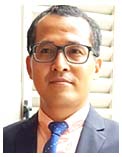 Dr. Anuphap Prachumwat is a researcher at National Center for Genetic Engineering and Biotechnology (BIOTEC) of National Science and Technology Development Agency (NSTDA) in Thailand. He received his doctorate in Genetics from University of Chicago, USA, with a thesis on molecular evolution of gene duplicability and gene functions. Currently, he focuses on utilizing genomic sequences to better understand interactions between shrimp, their pathogens and microbiomes. He has collected and constructed a comprehensive shrimp transcriptome sequence database for cataloging shrimp genes responsive to pathogens. He analyzes genomes and transcriptomes of several shrimp pathogens (bacteria, virus, bacteriophages and microsporidia) for developing detection methods and strategies to control infections and reduce virulence. With advances in DNA sequencing technologies and bioinformatics, he and his colleagues will also focus on microbiomes of shrimp and rearing ponds for shrimp health and pathogen discovery of current and possible future emerging shrimp diseases.
Dr. Anuphap Prachumwat is a researcher at National Center for Genetic Engineering and Biotechnology (BIOTEC) of National Science and Technology Development Agency (NSTDA) in Thailand. He received his doctorate in Genetics from University of Chicago, USA, with a thesis on molecular evolution of gene duplicability and gene functions. Currently, he focuses on utilizing genomic sequences to better understand interactions between shrimp, their pathogens and microbiomes. He has collected and constructed a comprehensive shrimp transcriptome sequence database for cataloging shrimp genes responsive to pathogens. He analyzes genomes and transcriptomes of several shrimp pathogens (bacteria, virus, bacteriophages and microsporidia) for developing detection methods and strategies to control infections and reduce virulence. With advances in DNA sequencing technologies and bioinformatics, he and his colleagues will also focus on microbiomes of shrimp and rearing ponds for shrimp health and pathogen discovery of current and possible future emerging shrimp diseases.
 Dr. Ha Thanh Dong is a dynamic researcher in the field of aquatic animal health. His focus is on identifying and characterizing emerging aquatic pathogens that affect important aquaculture species in Asia. He has made significant contributions to the understanding and diagnosis of infectious and emerging diseases, particularly in tilapia, Asian sea bass, catfish, snake skin gourami, Siamese fighting fish, and White leg shrimp. Dong's innovative work extends to fish vaccine development, nanobubble technology, and other disease-control strategies as alternatives to antibiotics. He has authored over 100 international peer-reviewed articles related to this field.
Dr. Ha Thanh Dong is a dynamic researcher in the field of aquatic animal health. His focus is on identifying and characterizing emerging aquatic pathogens that affect important aquaculture species in Asia. He has made significant contributions to the understanding and diagnosis of infectious and emerging diseases, particularly in tilapia, Asian sea bass, catfish, snake skin gourami, Siamese fighting fish, and White leg shrimp. Dong's innovative work extends to fish vaccine development, nanobubble technology, and other disease-control strategies as alternatives to antibiotics. He has authored over 100 international peer-reviewed articles related to this field.
 Dr. Amararatne Yakupitiyage is Adjunct Professor in Aquaculture and Aquatic Resources Management (AARM) Program at Asian Institute of Technology (AIT), Thailand. He obtained his Ph.D from the University of Stirling. He is specialized in designing of tropical aquaculture systems, aquaculture nutrition, and feed technology. He has supervised around 130 Masters and 30 Doctoral students, and published over 60 peer-reviewed papers.
Dr. Amararatne Yakupitiyage is Adjunct Professor in Aquaculture and Aquatic Resources Management (AARM) Program at Asian Institute of Technology (AIT), Thailand. He obtained his Ph.D from the University of Stirling. He is specialized in designing of tropical aquaculture systems, aquaculture nutrition, and feed technology. He has supervised around 130 Masters and 30 Doctoral students, and published over 60 peer-reviewed papers.
 Dr Krishna R. Salin is the Chair of the Aquaculture Program at Asian Institute of Technology (AIT), Thailand, coordinating and supervising aquaculture research and education at AIT. He is the President of the World Aquaculture Society Asian-Pacific Chapter (WAS-APC) and Honorary Director of the intergovernmental Network for the Development of Agricultural Cooperatives in Asia and the Pacific (NEDAC), Bangkok. Dr. Salin is also an Associate Editor for the Elsevier journal Aquaculture Reports and a Visiting Professor at Shanghai Ocean University in China. His research involves the development of cleaner aquaculture systems, innovative hatchery techniques, and climate-smart production and consumption. Besides, he offers customized training programs and technical consulting services to governments, researchers, and businesses worldwide, based on the AIT's Sustainable Asian Aquaculture platform.
Dr Krishna R. Salin is the Chair of the Aquaculture Program at Asian Institute of Technology (AIT), Thailand, coordinating and supervising aquaculture research and education at AIT. He is the President of the World Aquaculture Society Asian-Pacific Chapter (WAS-APC) and Honorary Director of the intergovernmental Network for the Development of Agricultural Cooperatives in Asia and the Pacific (NEDAC), Bangkok. Dr. Salin is also an Associate Editor for the Elsevier journal Aquaculture Reports and a Visiting Professor at Shanghai Ocean University in China. His research involves the development of cleaner aquaculture systems, innovative hatchery techniques, and climate-smart production and consumption. Besides, he offers customized training programs and technical consulting services to governments, researchers, and businesses worldwide, based on the AIT's Sustainable Asian Aquaculture platform.



